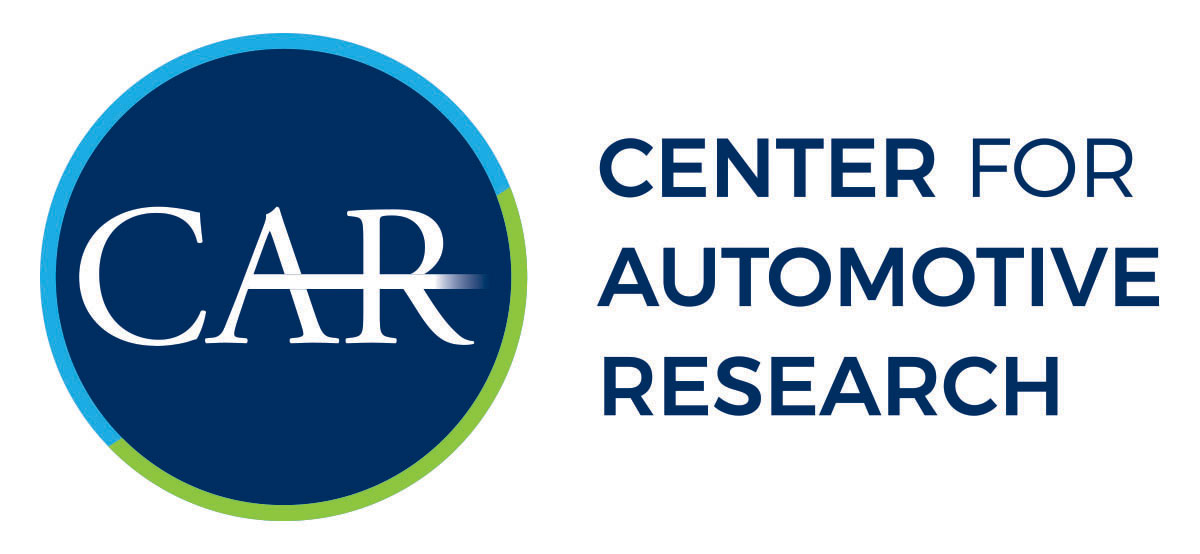Publications
The Center for Automotive Research is involved in the research of significant issues that relate to the future direction of the global automotive industry. As a nonprofit research organization, and in cooperation with study funders, most CAR research is released publicly through this website.
The Electric Vehicle Battery and Circular Economy Observations
The Electric Vehicle Battery and Circular Economy Observations Recycling, Jobs, R&D & Scope 3 Carbon Emissions The concept of a circular economy for Lithium-Ion batteries (LiBs), along with its drivers, barriers and enablers has been studied recently (NREL 2021) with a view to inform public policy at the federal, state,…
Analog AM Band Interference in Electric Vehicles
There is an effort in the US Congress to require automakers to maintain AM radio in all vehicles, including new electric vehicles (EVs). However, the nature of EVs and their operating conditions, including acceleration and deceleration, pose a challenge to ensuring electromagnetic compatibility (EMC) with the analog AM band radio….
State of ADAS, Automation, and Connectivity
Vehicles are currently in a new stage of evolution that includes advanced driver assist, connectivity, and automation. Due to the evolving nature of the technology and shifting consumer preferences, the timing and pathway for implementation of these technologies is still uncertain. While these new technologies are still evolving, an understanding…
The Inflation Reduction Act: Clean Vehicle Credits
On August 16, President Biden signed the Inflation Reduction Act (IRA) of 2022 into law. The law will, among many things, allocate nearly $370 billion to climate and energy-focused investments and incentives. The IRA resulted from a hard-fought effort that created a complex regulation. One of the many things the…
From Internal Combustion to Battery Electric Vehicles: Enabling Digital Manufacturing – Whitepaper
Today’s automotive industry faces a historical shift from internal combustion engine (ICE) vehicles to battery electric vehicles (BEV). This shift is profound, dramatically altering the structure of the automotive value chain and the vehicle manufacturing process. This conversion occurs as the industry undergoes a digital transformation. The ICE to BEV…
Digital Transformation and Its Impact on Quality Assurance Whitepaper
The conversion brought forth by digital transformation and advanced technologies has made a tremendous impact on the way manufacturers process and manage their organizations. While the strategies of agile and modern management systems, specifically quality management, are the result of digital conversion, there is still limited understanding and unclear identification…
Data driven digital platforms for automotive transformation – Whitepaper
It is almost cliché that the automotive industry is undergoing transformational change. Perhaps not since the Model T first revolutionized the industry has so much change come so quickly. Driving this evolution is the unstoppable momentum of a Connected, Automated, Shared, and Electrified (CASE) driven digital transformation, which is upending…
Sustainability Roundtable Whitepaper
CAR conducts quarterly meetings with CAR Affiliates—a group of over 65 automotive stakeholders whose contributions support CAR’s research activities. Over the past 18 months, sustainability has become a key point of discussion at these meetings. The increasing focus on sustainability is even more noteworthy amidst seemingly unprecedented challenges and change….
A Brief Review of Proposed Rulemaking: The Revised 2023 and Later Model Year Light-Duty Vehicle Greenhouse Gas Emissions Standards
On 10 August 2021, the U.S. Environmental Protection Agency (EPA) published the Proposed Revision to the 2023 and Later Model Year Light-Duty Vehicle Greenhouse Gas Emissions Standards. The Notice of Proposed Rulemaking functions as a revision to the regulations for the model years (MY) 2023-2026, which the Trump Administration’s Safer…
Vehicle Mass Reduction Roadmap Study 2025-2035
The National Academies of Sciences, Engineering, and Medicine (NASEM) Committee on Assessment of Technologies for Improving Fuel Economy of Light-Duty Vehicles, Phase 3 was tasked by The National Highway Traffic Safety Administration (NHTSA) with providing estimates of the potential cost, fuel economy improvements, and barriers to deployment of technologies for…
